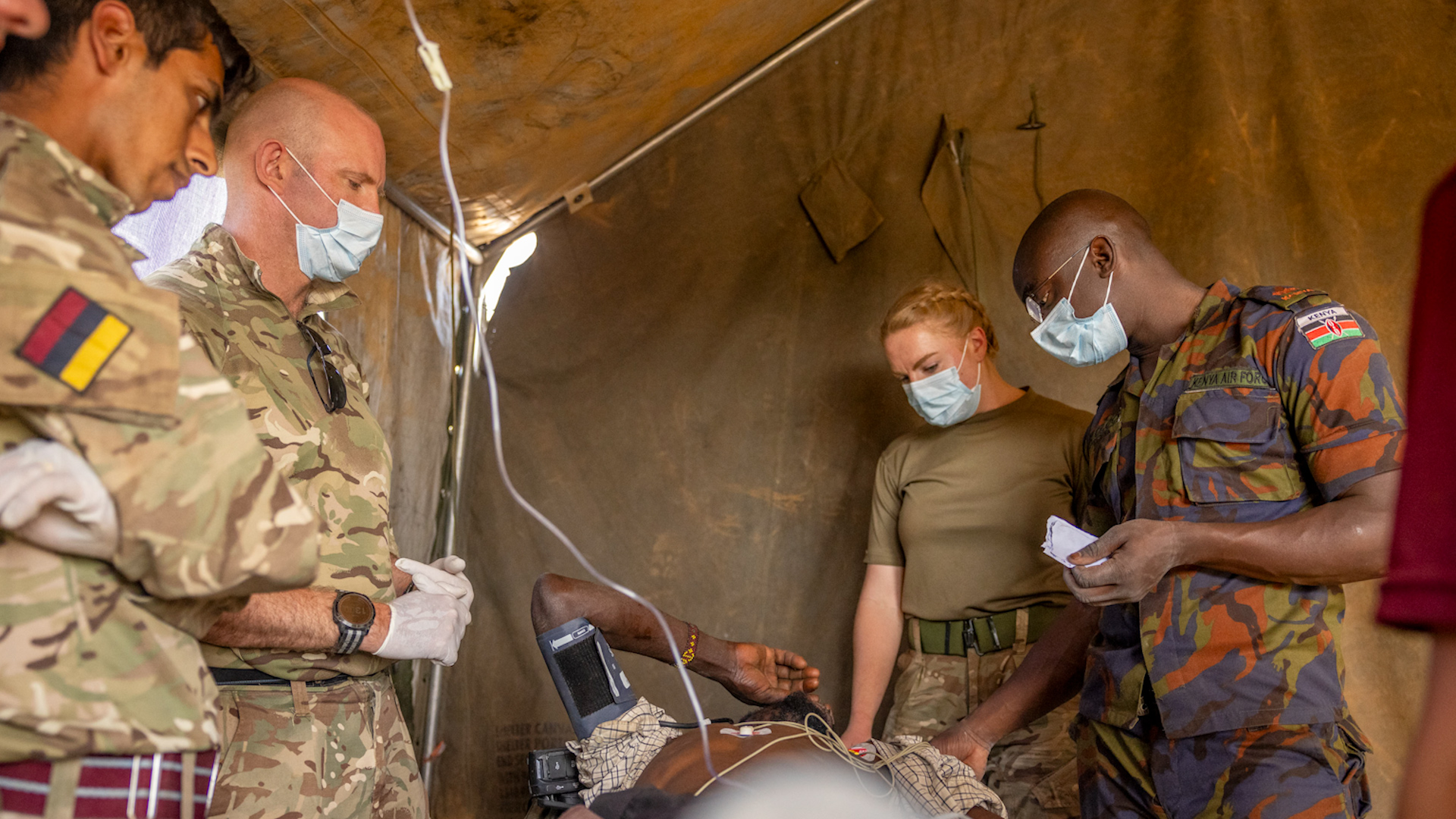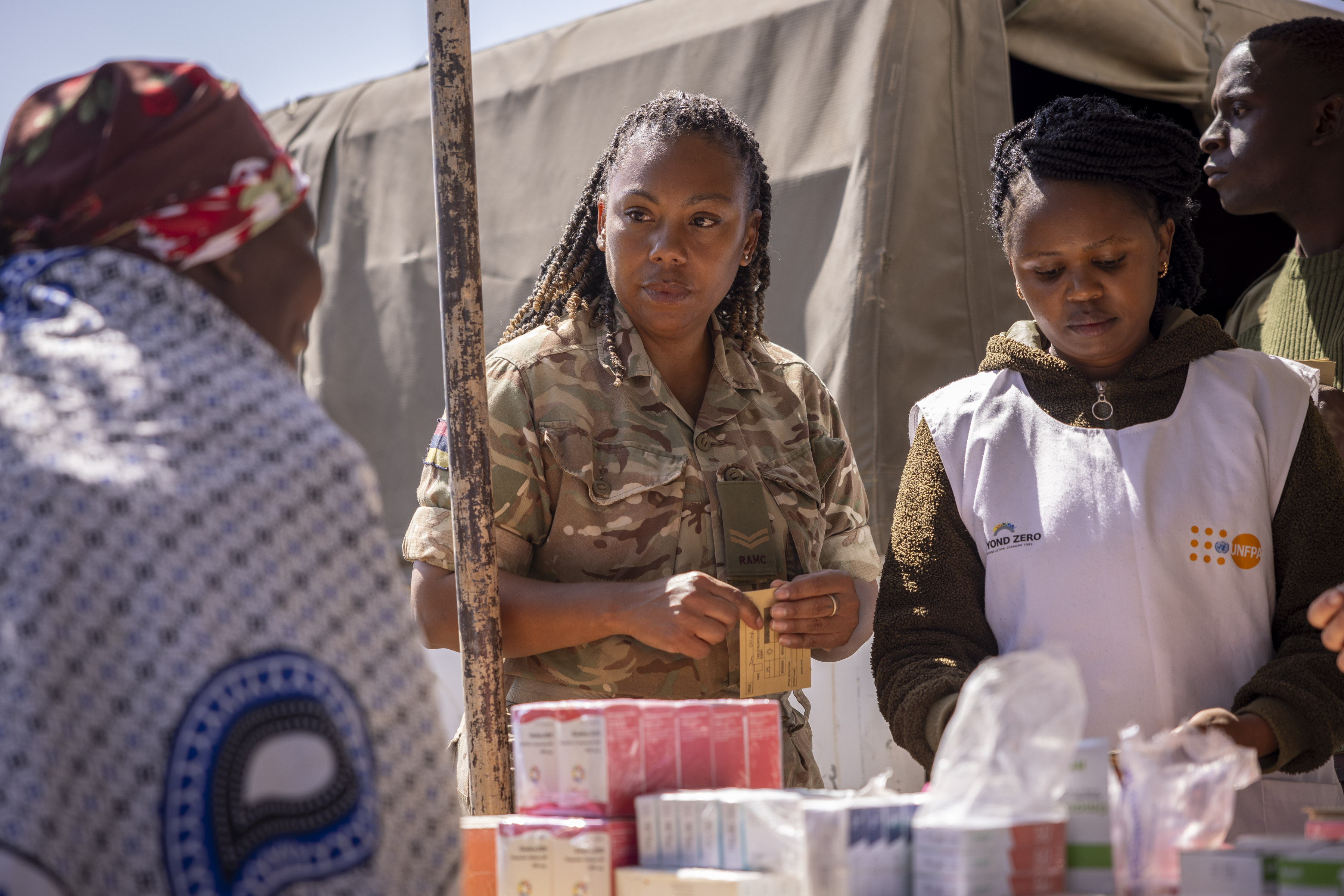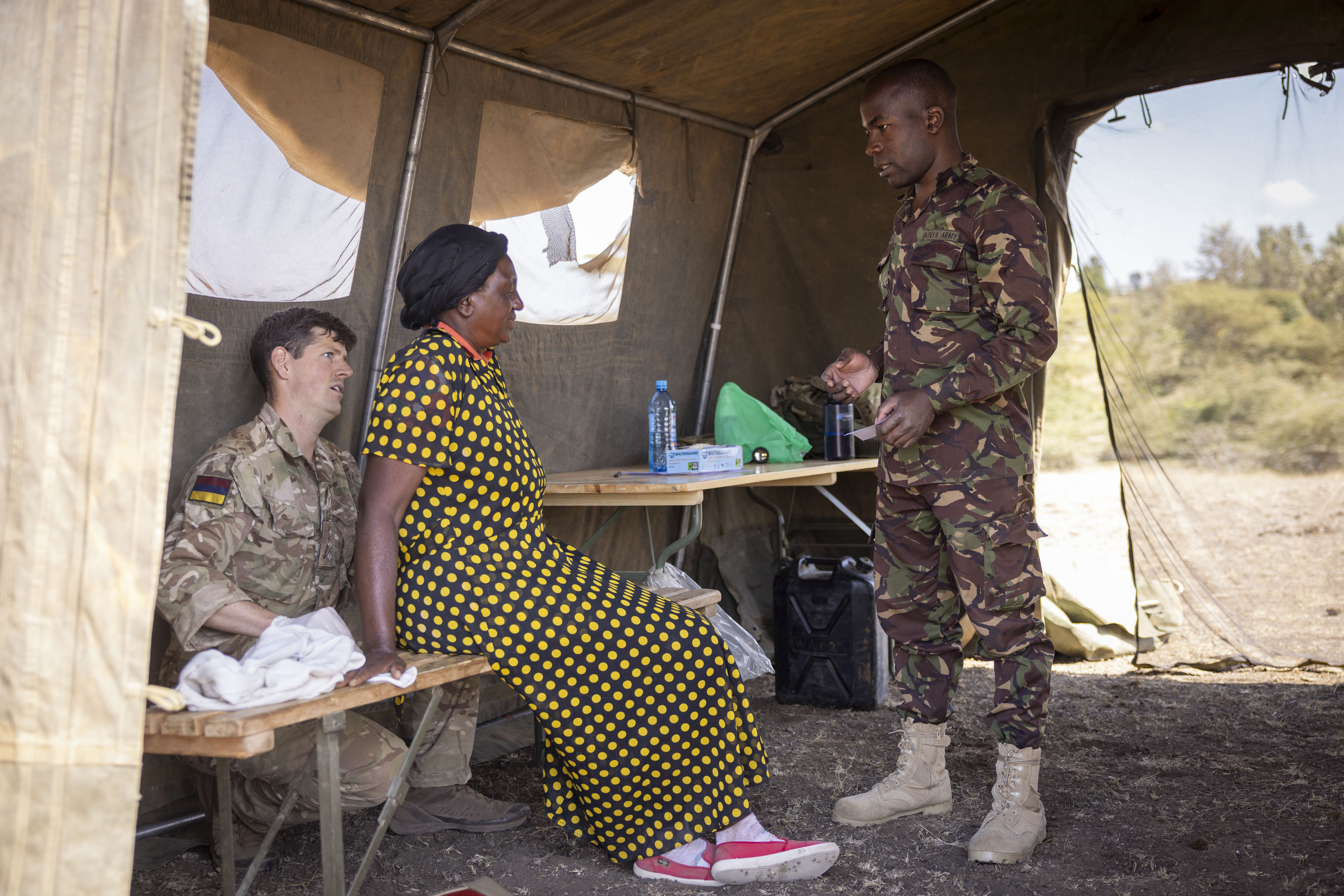
Army airborne medics drive across Kenyan savannah to treat more than 7,500 patients

British Army medics have driven more than 700 miles through the Kenyan savannah to provide medical treatment to more than 7,500 patients in remote villages to support the civilian community and boost their specialist training in wilderness medicine.
The Airborne medics from 19 Squadron of 16 Medical Regiment teamed up with Kenyan military and civilian medics to provide primary healthcare to isolated communities in Kenya's Laikipia County, as part of Exercise Haraka Serpent.
Under an agreement with the Kenyan government, up to six infantry battlegroups per year carry out eight-week exercises in Kenya, with the stifling heat and arduous terrain providing a stern test for units preparing to deploy on operations or assume high-readiness tasks.
- RAF's Tactical Medical Wing plays leading role in Exercise Mobility Guardian 23
- 150 Ukrainian medics to be trained by British Army on new courses
- How military medics could train to save lives on the battlefield using virtual reality
The British troops have worked alongside medics from the Kenyan Defence Force, the Kenyan Red Cross, and Beyond Zero - a government-funded organisation which promotes maternal and infant health.
Military and civilian medical specialists travelled through the savannah to treat patients and operate clinics in 11 towns and villages.

The Colchester-based soldiers were able to test their planning and logistical skills on the exercise, while learning skills for wilderness medicine.
The work took healthcare to communities that do not have regular medical facilities, as a return benefit for allowing UK troops to train in the country.
British Army Training Unit Kenya is a permanent training support unit that hosts Royal Engineer exercises to conduct civil engineering projects and medical deployments to support people in the community.
Combat Medical Technician Lance Corporal Bernard Bryce said: "The healthcare interventions we have been able to provide, which are often taken for granted in the UK, have been life changing for many of the people we have seen. In resource-limited communities, the burden from easily preventable and curable diseases is massive."
Corporal Sally Sinclair, a nurse, described the exercise as "an invaluable experience". "This was my first-time treating patients in a more austere environment outside of an NHS setting, with minimal kit and different protocols," she said.
"I've learnt a lot about how the British and Kenyan militaries approach pre-hospital treatment and, when we did the outreach clinics, a great deal about triaging and subsequently delivering essential primary care."

Major Iain MacArthur, Officer Commanding 19 Squadron, said: "Everybody on the exercise has really pitched in to deliver success, from our doctors, nurses and medics to our vehicle mechanics and HR specialists.
"It's been great to see the way our team have been able to gel with our Kenyan partners, both civilian and military. I know that this experience of delivering healthcare in remote settings to such a diverse range of patients will be of enormous benefit to all our soldiers.
"Exercise Haraka Serpent is, in my opinion, one of the best medical exercises for any medic to deploy on, and everyone will leave the exercise as better soldiers and with a much-enhanced worldview."
The core purpose of 16 Medical Regiment is to provide medical support to 16 Air Assault Brigade Combat Team – the British Army's global response force.
It is equipped to deliver a full range of clinical care – from pre-hospital emergency care to life-saving surgery – at short notice by parachute, helicopter, or air landing, the Army said.









